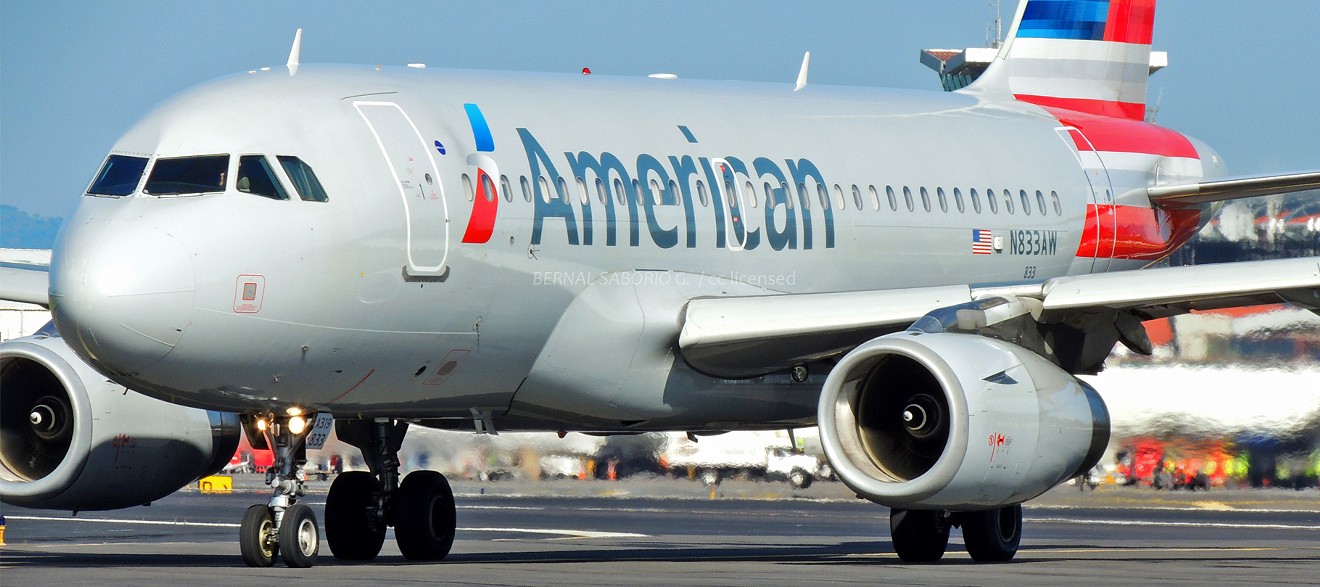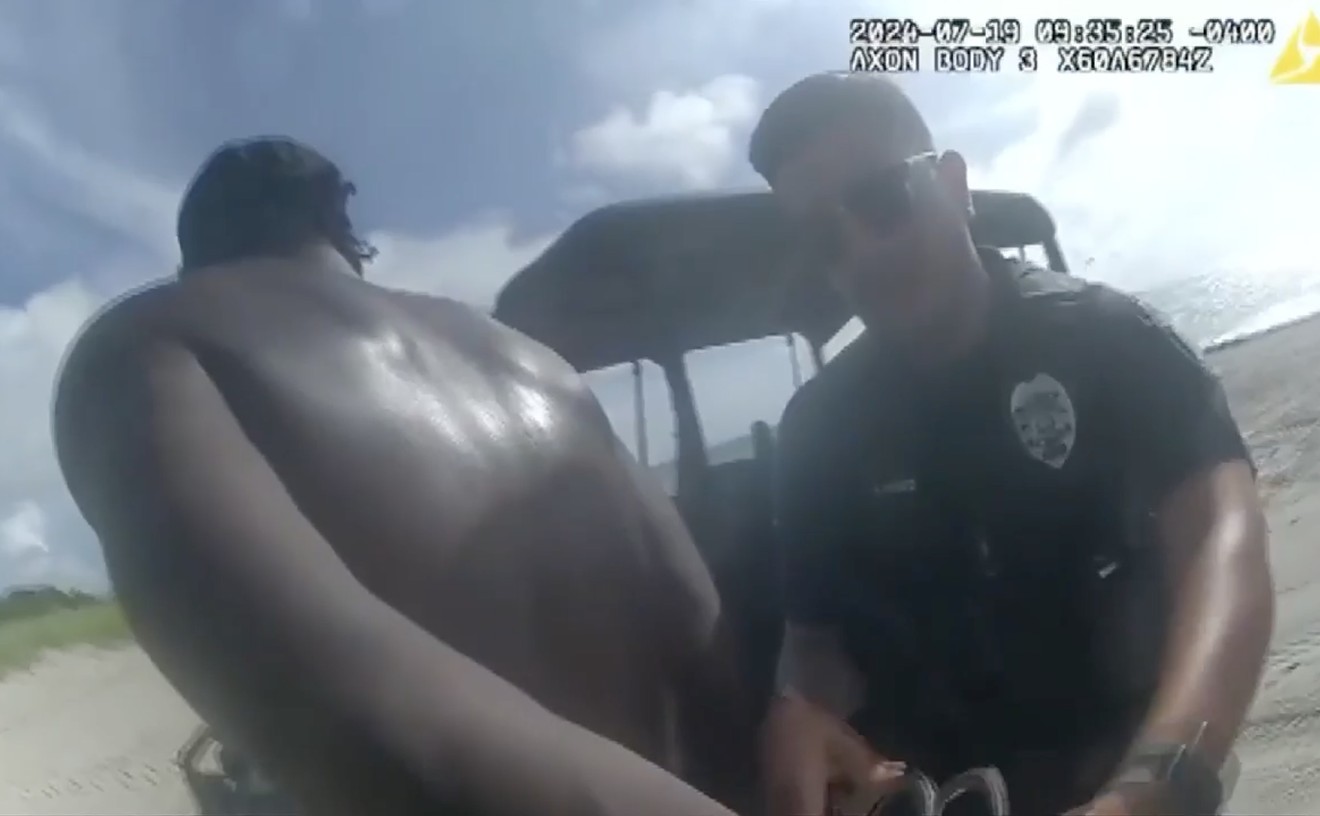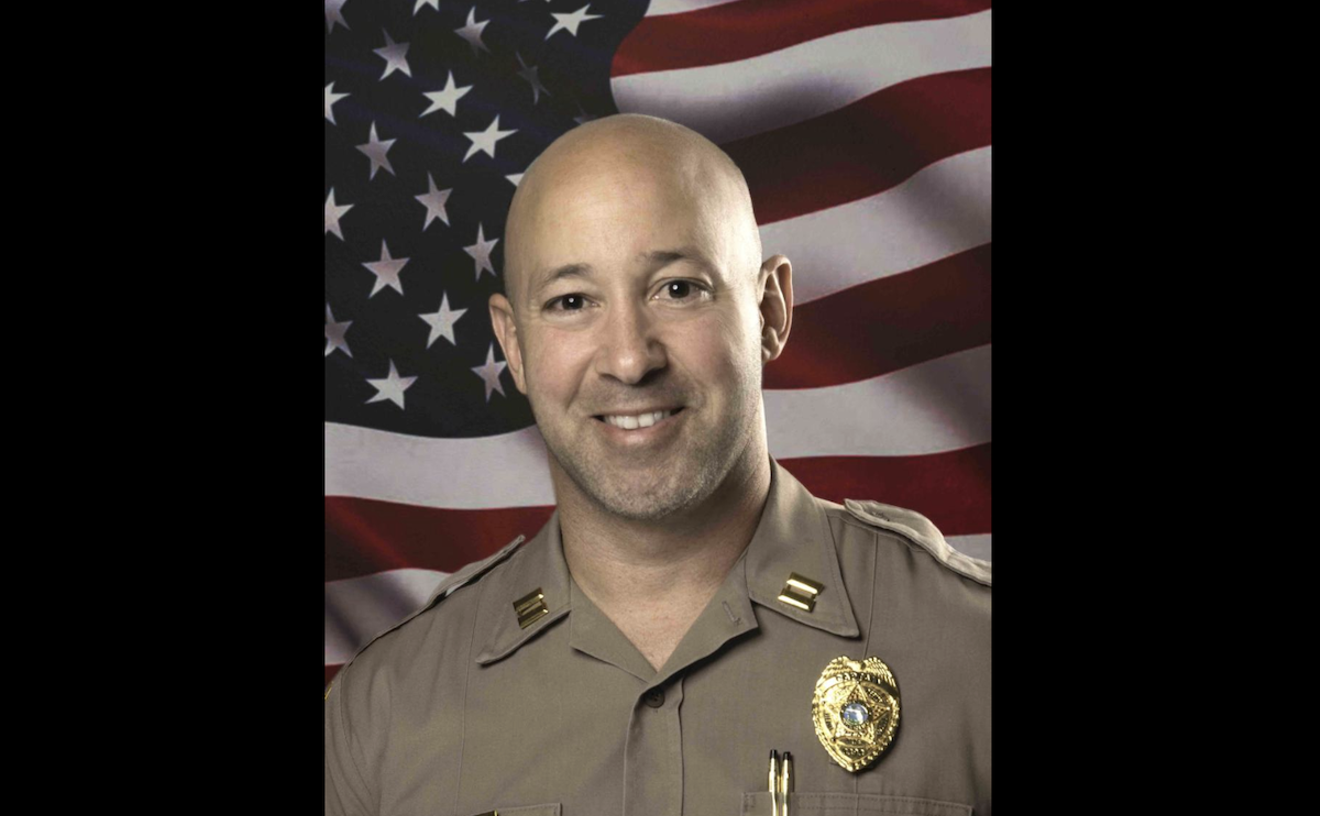"I've been working at the airport for weeks during this pandemic, risking my life and health to make sure that passengers get to where they need to go," Joseph Palma, a former U.S. Customs and Border Protection customer service agent for Eulen America, said in a press release about the layoffs. "Without us, the airlines couldn't function and their profits wouldn't be possible. There should be no bailout if contracted airport workers like myself are left out in the cold."
After airline passengers retrieve their carry-ons and disembark from planes, the cleaning crews at Miami International Airport get to work. On a normal day, Edna spends hours cleaning a range of bodily fluids travelers leave behind in the bathrooms, on their seats, on seatbelts, beneath seat cushions, and in seat pockets.
"Fecal matter, urine, vomit, everything," says Edna, who asked New Times to use a pseudonym because she fears losing her job.
Edna works for Eulen America, a company that subcontracts employees to provide services for American Airlines, Delta, and other passenger airlines at Miami International Airport (MIA). Last year, the Occupational Safety and Health Administration (OSHA) slapped Eulen with citations and fines following a five-month investigation into serious worker-safety violations.
Some Eulen workers at MIA now fear they are woefully unprepared to keep themselves safe and do their jobs effectively amid the COVID-19 pandemic.
"In normal times, [Eulen's] practices around safety and quality are very concerning," says Helene O'Brien, the Florida director for 32BJ SEIU, the union representing Eulen workers at Fort Lauderdale-Hollywood International Airport. "So now, workers are even more concerned."
A Eulen America spokesperson told New Times the company would not issue a statement for this story. The company has previously disputed workers' complaints following an investigation by CBS Miami's Jim DeFede last year.
In her time with Eulen, Edna has cleaned bathroom sinks full of vomit and scrubbed fecal matter off the walls. She has thrown out used tissues wedged between the pages of airline magazines and found used menstrual products and children's diapers inside the paper barf bags. Some days, she has hours to sanitize cabins in preparation for the next rush of travelers; other days, she and her co-workers get only 20 minutes.
Eulen has already been cited for exposing MIA workers to blood-borne pathogens. OSHA says the company didn't provide training on how to safely handle cleanups of hypodermic needles and passengers' blood, nor did it offer hepatitis B vaccinations to at-risk workers.
There are no reported cases of COVID-19 spreading through blood, but cabin cleaners such as Edna are regularly exposed to biohazards. They do not have paid sick leave and sometimes report to work when they feel unwell because, if they don't, their paychecks suffer. Many of the workers say they can't afford Eulen's insurance plan and are instead enrolled under the Affordable Care Act. Most make $13 to $17 an hour, but they work part-time.
"There's a whole national warning for people to work from home and self-quarantine," O'Brien says. "It sounds great, but for folks on the front line at the Miami airport working for a contractor with a long record of bad practices for health and safety, it's advice that's hard to take."
Lawmakers, airport workers, and 32BJ SEIU advocates in New York are pushing for the passage of the Healthy Terminals Act, a bill that would require airport employers to provide a benefits supplement so workers — including subcontracted service workers — can get health insurance.
O'Brien says Eulen provides workers with gloves and hand sanitizer, but the gloves shred easily and need to be changed regularly. The union doesn't represent employees at MIA because Eulen has resisted organizing efforts, according to O'Brien, but union representatives provide supplies, such as stronger gloves, to MIA workers when they can. It's unclear what policies Eulen has to ensure airline worker safety under regular circumstances, much less under the threat of a pandemic.
Edna says she wishes the company would do more to protect its employees, especially the cabin cleaners because of their exposure to bodily fluids and unsanitary conditions. Managers, meanwhile, have told employees not to worry, Edna says.#MIA airport is filled w #Superbowl travelers and the CDC is screening for #coronavirus. But airport workers for airline subcontractor, #EulenAmerica say they dont have adequate gloves, even when exposed to potential pathogens. #Eulen respect your workers' safety! @CBSMiami pic.twitter.com/IWKXUOruiw
— 32BJ SEIU Florida (@32BJFlorida) February 1, 2020
"They're not giving coronavirus the importance it is due," she tells New Times in Spanish.
O'Brien says 32BJ SEIU is partnering with the National Council for Occupational Safety and Health (COSH) to coordinate training sessions for Eulen workers to learn about infectious diseases. Training sessions will be offered at the Miami and Fort Lauderdale international airports in the coming days.
Peter Dooley, COSH's national safety and health senior project coordinator, tells New Times that because workers are on the front line, they need to be trained in prevention and protected in situations of infectious disease.
In the case of Eulen, he says, it's a red flag that the company has already been cited for serious worker safety and health violations.
"In this situation with trying to protect workers and contain a highly infectious disease, there is emerging information literally hourly about how [coronavirus] can adversely affect workers and the public," he says. "It's really a problem with contractors that have demonstrated an inability to have the minimum health and safety programs required by law."
Dooley says it's critical for workers to have access to bathrooms to wash their hands regularly. But some Eulen employees say their work demands mean they often go several hours without being able to use the bathroom or wash their hands.
Frank, a Eulen employee who also asked that his real name not be used, helps U.S. Customs and Border Protection agents with traveler screenings.
"I always get sick working in my section," Frank tells New Times in Spanish.
Frank has worked for Eulen for almost two years. He was hospitalized recently with the flu and missed seven days of work. Frank says he owes thousands of dollars in hospital bills and needed to ask his landlord for extra time to pay his rent.
Every day, he interacts with travelers from around the world, their baggage, and, sometimes, their contraband. He says some of his recent workdays have been so busy he has washed his hands only two or three times.
Edna says she and some co-workers spent six hours cleaning plane cabins on a recent workday and couldn't go to the bathroom until the end of their shift.
"Our bladders were bursting," she says. "Sometimes there is no time."
OSHA and the Centers for Disease Control and Prevention set guidelines for employers related to handwashing, limiting exposure to pathogens, providing personal protective equipment, and, now, how to clean an aircraft after a flight carrying passengers displaying COVID-19 symptoms.
OSHA's guidelines say that when a worker is exposed to blood-borne pathogens, employers must provide personal protective equipment such as gloves, gowns, lab coats, face shields or masks, eye protection, and mouthpieces. CDC guidelines say all bodily fluids should be treated as infectious — employers must provide protective gear and make sure all materials that come in contact with fluids are thrown out in sealed biohazard bags.
Workers cleaning airplane cabins after a flight can follow normal cleaning procedures if no symptomatic passengers were onboard. But some people become infected and don't develop symptoms or feel unwell, and the incubation period lasts up to 14 days.
Planes carrying symptomatic passengers require "enhanced" procedures — cleaning the affected passengers' seats and all surfaces in a six-foot radius.
Edna says if she were required to clean the cabin of a plane that had carried a symptomatic passenger, she would be worried about her safety.
"My daughter tells me: 'Mom, be careful,'" Edna says. "If I get sick, who will help me? I need to keep my job."













